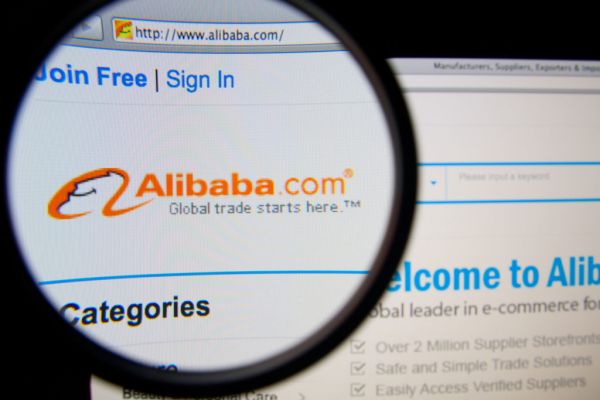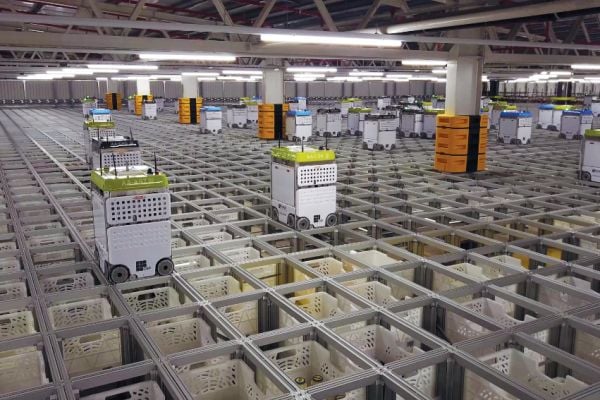Alibaba Group’s quarterly revenue beat analysts’ estimates, powered by Chinese consumers’ thirst for cheaper and higher quality goods online.
Revenue at China’s biggest e-commerce company rose 56% to 50.2 billion yuan ($7.4 billion) in the three months ended June, the company said. That compares with the 47.9 billion yuan average of estimates compiled by Bloomberg. It reported non-GAAP diluted earnings-per-share of $1.17, versus the $0.94 projected.
Alibaba bolstered its dominance in e-commerce by improving the advertising algorithms it uses to generate revenue from brands trying to reach the 466 million active consumers on its online platforms. That is buying time for billionaire Chairman Jack Ma to venture into traditional retail, a sector he wants to revamp via experiments like HeMa Supermarket, a fresh foods store that also provides online grocery delivery.
“The big data driven algorithm provides a good balance between merchants’ ad budget" and user preference, Barclays Capital Inc. analyst Gregory Zhao said in a report before the earnings. “While core commerce is the engine for Alibaba’s near-term growth, new retail is expected to shape Alibaba’s business model in the long run.”
Shares of Alibaba rose 5%in pre-market trade in New York. The stock has gained 82% this year compared with a 7.3% gain for the NYSE Composite Index.
The company, which vies with Tencent in a plethora of businesses from cloud computing to digital media, reported a 58% rise in its core commerce operations to 43 billion yuan, while cloud revenue almost doubled to 2.4 billion yuan as paying customers for the business surpassed a million for the first time. The media division however, which runs a Netflix-like streaming service among other businesses, grew sales just 30%, after more than tripling in the March quarter.
Brick-And-Mortar Retail
Its biggest investments of late however have been in old-school brick-and-mortar retail. While Amazon’s acquisition of Whole Foods Market captured the public’s imagination, Alibaba has been ramping up assets in traditional retail, vowing to revamp a $4 trillion market.
It led a $2.6 billion deal to take private Intime Retail Group, which operated and managed 29 department stores and 17 shopping malls across the country as of end-June last year. It’s also working with partly owned Suning Commerce Group Co.
The company is betting data and cloud technology can change the way brands monitor inventory and enable them to ship goods based on real-time demand while also rendering multiple layers of middlemen redundant.
The showcase for that effort is HeMa, which mashes three functions — groceries, dining and delivery. Customers can buy items such as lobster, get house chefs to cook it, and also have items delivered. Shoppers gets recommendations for products they might be interested in by scanning bar codes via the HeMa app, and pay with their digital wallet Alipay.
“Alibaba Group is the best way to play the Chinese consumer theme,” said Mitchell Green, New York-based managing partner at Lead Edge Capital, which is an investor in Alibaba and has about $1 billion under management. “Chinese people will spend a lot more on consumer goods in a decade than they do today.”
News by Bloomberg. Click subscribe to sign up to ESM: The European Supermarket Magazine.














